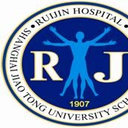Haitian Creole
Albanian
Arabic
Armenian
Azerbaijani
Belarusian
Bengali
Bosnian
Catalan
Czech
Danish
Deutsch
Dutch
English
Estonian
Finnish
Français
Greek
Haitian Creole
Hebrew
Hindi
Hungarian
Icelandic
Indonesian
Irish
Italian
Japanese
Korean
Latvian
Lithuanian
Macedonian
Mongolian
Norwegian
Persian
Polish
Portuguese
Romanian
Russian
Serbian
Slovak
Slovenian
Spanish
Swahili
Swedish
Turkish
Ukrainian
Vietnamese
Български
中文(简体)
中文(繁體)
Breast Cancer Research 2019-05
Se sèlman itilizatè ki anrejistre yo ki ka tradwi atik yo
Log In / Enskri
Lyen an sove nan clipboard la
Baz done ki pi konplè remèd fèy medsin te apiye nan syans
- Travay nan 55 lang
- Geri èrbal te apiye nan syans
- Remèd fèy rekonesans pa imaj
- Kat entèaktif GPS - tag zèb sou kote (vini byento)
- Li piblikasyon syantifik ki gen rapò ak rechèch ou an
- Search remèd fèy medsin pa efè yo
- Izeganize enterè ou yo ak rete kanpe fè dat ak rechèch la nouvèl, esè klinik ak rive
Tape yon sentòm oswa yon maladi epi li sou remèd fèy ki ta ka ede, tape yon zèb ak wè maladi ak sentòm li itilize kont.
* Tout enfòmasyon baze sou rechèch syantifik pibliye





